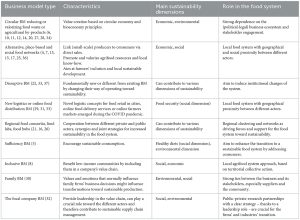Investing in Real Estate
4 min read
As an investor, one of the most important things you can do is network with other real estate investors. In addition, you should also network with contractors and related professionals. Start building your network by joining a local REIA, and attend meetings regularly. Make friends with other investors – these people are not always your competitors. Sometimes, they may share good deals you might have missed.
Active vs passive approach
The choice between an active and a passive approach to real estate investing is often a personal one. Some investors may like the challenge of tackling a retail property, others might prefer single-family rental properties, and still others might prefer the more hands-off nature of passive investing. Whatever your motivation, the most effective real estate investing approach is one that suits your needs.
For those who are employed full-time, passive investing can be highly rewarding. It allows you to benefit from the experience of others, and it can help you avoid making costly mistakes that can result in substantial financial loss. In addition, passive investing has many tax benefits, but the barrier to entry may be high, especially for young professionals who may not have a lot of time to devote to property investment.
An active approach to real estate investing involves purchasing and managing properties yourself, which requires a great deal of time. It’s basically like having a second full-time job. An active real estate investor is involved in all aspects of the investment process, including marketing, selling, and maintaining the property. Alternatively, a passive real estate investor delegates those tasks to professionals who specialize in those areas.
Leverage
When you are investing in real estate, leveraging can be an important tool to help you grow your rental property business. However, when you are calculating leverage, it’s important to be conservative. You don’t want to overextend yourself and ruin your career. Therefore, you should calculate the leverage using conservative numbers, such as a low rent amount and a high amount of expenses. If possible, you should also have some money set aside as a down payment to avoid overleveraging.
Using leverage can also be advantageous for investors who are looking to maximize their returns. For example, a $100,000 cash investment can help you purchase a $500,000 apartment building with a loan of $400,000 from a lender. After paying $20,000 in interest, you will have a $50,000 net operating income from this property each year. You will end up with a 30% cash return from this investment. However, you should remember that the financial gains and losses will be magnified if you use leverage.
When using leverage in real estate, make sure that you do your research and make sure you know how to handle a down payment. The biggest risk associated with leveraged real estate is overleveraging. If you can’t pay the mortgage, you could lose the property and have to pay extra expenses. If the lender forecloses on your property, they can also take your other assets. This can have negative implications for your credit score and future loans.
Tax benefits
Real estate investing provides investors with some incredible tax benefits. As long as you’re a prudent investor, you can lock in decades of tax-free returns. In addition, some types of real estate investment have favorable tax rates, including refinancing. Refinancing is a process that replaces an old mortgage with a new one at a lower interest rate. This process not only gives you fresh money, but it also lowers your monthly payment.
There are many tax advantages to real estate investing, and many people overlook these benefits. The principal benefit is that you can write off some of your expenses. For example, if you own a property that is rented out, you can deduct some of the expenses you incur in collecting rent. There are also several common expenses that you can write off, which means you don’t pay any government taxes on them.
Another major tax benefit of real estate investing is the ability to defer capital gains taxes for 1031 exchanges. This program allows real estate investors to swap one property for another property of equal or greater value. This can help investors save thousands of dollars on taxes. However, these transactions can be complicated, so it’s best to consult with a professional for the best results.
Returns
Returns from real estate investing differ greatly depending on the type of investment and the time horizon. Those who are looking for short-term cash flow should focus on properties with a diverse tenant mix. Meanwhile, those looking for long-term buy-and-hold investments should focus on acquiring properties at the best price.
Real estate is an excellent investment choice for many people. It provides stable capital appreciation and a high rental yield. In addition, it also provides a natural hedge against inflation and fluctuating economies. This allows investors to diversify their portfolios and enjoy financial freedom. In addition, real estate is the best choice for people who want to use their property in a way that is meaningful for them.
However, there are many risks associated with real estate investing. This type of investment requires a significant investment and time. As with any other investment, it is important to assess your current financial situation and determine the amount of time you can spend on the investment.






